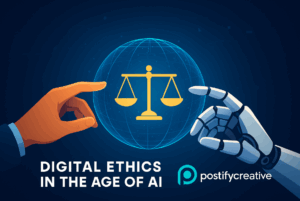Technology has always been a driving force in human progress. From the industrial revolution to the rise of the internet, each wave of innovation has solved problems — but also created new ones. As we look ahead, future technologies like artificial intelligence, biotechnology, and robotics promise incredible opportunities. Yet, they also raise serious social issues we must prepare for.
Technology and Society: An Inseparable Bond
Every new technology changes the way we live, work, and think. While future tech can help solve problems like poverty, climate change, and healthcare shortages, it can also widen inequalities, threaten jobs, and raise ethical dilemmas. The question is not whether technology will shape society, but how we choose to use it.
Key Social Issues Emerging with Future Tech
1. Job Displacement by Automation
AI and robots are expected to replace millions of jobs. While they increase efficiency, many workers may be left behind unless societies invest in reskilling and new opportunities.
2. Privacy and Data Control
From smart homes to wearable health devices, future tech will know more about us than ever. Who owns that data, and how it’s used, will become one of the biggest ethical challenges.
3. Digital Divide
Advanced technologies can uplift societies — but only for those who can access them. The gap between rich and poor countries, and even between urban and rural areas, may widen if technology is not made inclusive.
4. AI Ethics and Bias
AI can make decisions in healthcare, hiring, and law enforcement. But if algorithms are biased, they may reinforce discrimination. Ensuring fairness, accountability, and transparency will be vital.
5. Environmental Impact
While green technologies can reduce carbon footprints, the production of new gadgets and data centers consumes vast amounts of energy. Balancing innovation with sustainability will be critical.
How Future Tech Can Solve Social Issues
Despite challenges, technology holds solutions to some of the world’s hardest problems:
- Healthcare → AI-powered diagnostics and biotech can bring affordable healthcare to remote areas.
- Climate Change → Renewable energy, carbon capture, and smart agriculture can help fight global warming.
- Education → Virtual classrooms and AI tutors can make quality education available worldwide.
- Equality → If made accessible, tech can bridge social divides, giving opportunities to underrepresented communities.
The Way Forward
Future tech is neither good nor bad on its own — it’s a tool. The real issue is how we choose to design, regulate, and use it. Governments, businesses, and individuals must work together to ensure technology is inclusive, ethical, and sustainable.
If imagination builds the future, then responsibility must guide it. Only then can technology become a true force for good.
Final Thoughts
We stand at a crossroads: one path leads to a future where technology empowers humanity, while the other risks deepening inequality and social unrest. The choice is ours — and the time to act is now.
✨ Do you think future technology will solve more problems than it creates, or are we heading toward new kinds of social struggles?




